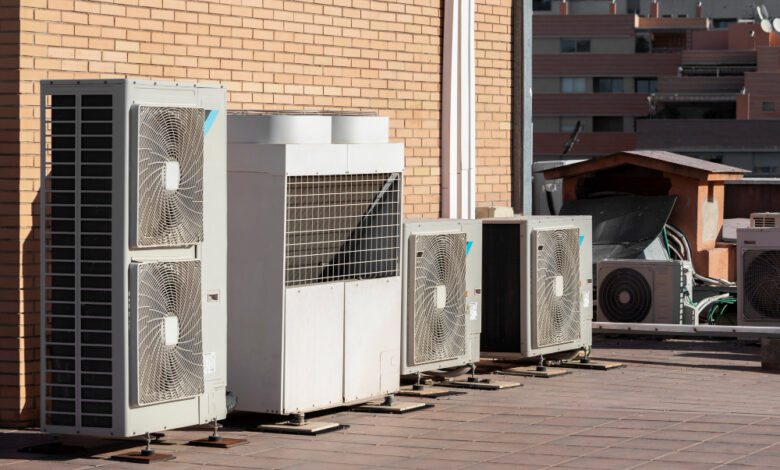Why Does Your HVAC Unit Keep Tripping the Breaker?

The goal of a functioning HVAC system is to maintain constant comfort without interfering with electrical flow. However, many homeowners find themselves in a frustrating cycle where their unit repeatedly trips the circuit breaker. In addition to being an annoyance, it is a sign of a problem that requires attention. Because breakers are designed to protect your home from overload, if your HVAC system keeps shutting off, it’s a clear sign that something is using more electricity than it should.
By understanding why this happens, you can protect your home and prevent your system from getting damaged. Although the symptoms may appear similar, the causes are typically different and can range from dirty parts to wiring issues.
Causes behind repeated breaker trips
Among the most frequent causes for a breaker to trip is an air filter or coil full of dust and debris. In case of disrupted airflow, the system must be forced to cool or heat the house, making the motor use more current and overheat. This surge of electricity prompts the breaker to trip, breaking the supply in an effort to protect the household.
Another common reason is a failing compressor. Because the compressor is the core of the HVAC system, a significant amount of energy is required to get it started. If it is failing, it can draw too much current and overload the breaker. Low refrigerant levels will also cause the system to operate nonstop, leading to overheating and regular breaker trips. These electrical and mechanical stresses demonstrate how a small problem can turn into something larger if not addressed.
Electrical overloads and wiring problems
The other primary reason why breakers trip is due to bad wiring or loose wiring connections. HVAC equipment needs steady electrical paths, and any damage or opening in the wiring can cause resistance. Not only does the resistance produce heat, but it also requires an increased amount of current, which soon overloads the circuit. Even a short circuit, where the wires come in contact with each other accidentally, can instantly compel the breaker to shut off power.
Electrical issues always worsen with time, and if your HVAC system constantly trips the breaker, neglecting it will result in possible fire dangers. To homeowners in locations that have an unstable power supply, the surges also stress the system and cause recurrent tripping. Having a professional inspect and fix wiring is crucial because such faults are usually concealed behind walls or within the unit. Some homeowners are looking for HVAC repair in Peoria.
tend to find that their breaker issues are often associated with forgotten wiring defects that need to be corrected right away.
The impact of dirty or failing components
Dirty coils, worn motors, or dying capacitors are also culprits that can cause your HVAC system to trip the breaker. Dusty coils lower efficiency and cause the compressor and blower motor to operate longer than necessary. When the bearings in the blower motor are failing, the motor will start to seize up and draw high amperage every time it operates. Likewise, capacitors, which give the motors the initial surge of power they need to get going, can weaken over time.
A compromised capacitor means the motor must work harder to get going, and will cause an electrical surge and trip the breaker. These problems typically develop over time, so early maintenance might keep the breaker out of harm’s way. Too many homeowners do not notice signs until the issue is persistent and bothersome. Treating dirty or failing components is not only crucial for electrical integrity but also for prolonging the life of the HVAC unit.
Refrigerant and airflow imbalances
Low levels of refrigerant allow a chain reaction that eventually triggers the breaker. When there is not enough refrigerant, the compressor can’t cool the system and is thus compelled to run for longer than it would under normal circumstances. This prolonged running consumes more electricity and causes overheating. Additionally, clogged-up evaporator coils, commonly caused by refrigerant leaks, narrow airflow, and compel the unit to work hard. Restricted airflow may also be generated by plugged vents or ductwork with accumulated dust.
The system is unable to control temperature when airflow is unbalanced, and this overworks the blower motor and compressor, taking them over safe operating levels. The breaker becomes the ultimate defense in this case by tripping the system before total damage. Homeowners seeing variations in temperature with accompanying breaker trips tend to have underlying refrigerant or airflow problems at the root of the issue, so this area is significant to inspect and repair.
Overworked systems and improper sizing
Another explanation why HVAC breakers will trip has to do with the system design itself. An undersized unit has to run continuously to meet demand, whereas an oversized one cycles on and off too often, causing electrical stress. Both situations result in excessive current consumption and resultant breaker trips. Age is also a factor; older equipment that has not been serviced is far more likely to exhibit signs of strain. In other houses, the breaker itself might not be sized appropriately for the HVAC unit it is designed to serve.
If the breaker is undersized for the load, it will trip even when the system is operating at its intended level. These mismatches highlight the need for proper system sizing and electrical planning during installation. In the absence of coordination between system requirements and electrical capacity, house owners are faced with persistent breaker disruptions that could be prevented through proper configuration.
If your HVAC system continues to trip the circuit breaker, it is not merely inconvenient but rather a definite indication that something is amiss within the system. From dirty filters and coils to faulty wiring, failing parts, refrigerant leaks, or even improper system sizing, the root causes can vary. All of these issues put excessive stress on the electrical system, causing the breaker to safeguard both the house and the unit from further harm.
It might result in expensive repairs or even pose safety risks, which is why it should be noticed early. Maintenance, timely checks, and professional upkeep can diagnose them before they become recurring breaker trips. By identifying potential causes and acting promptly, homeowners can maintain their HVAC systems in proper condition, prevent unnecessary outages, and ensure comfort and safety throughout their household.




